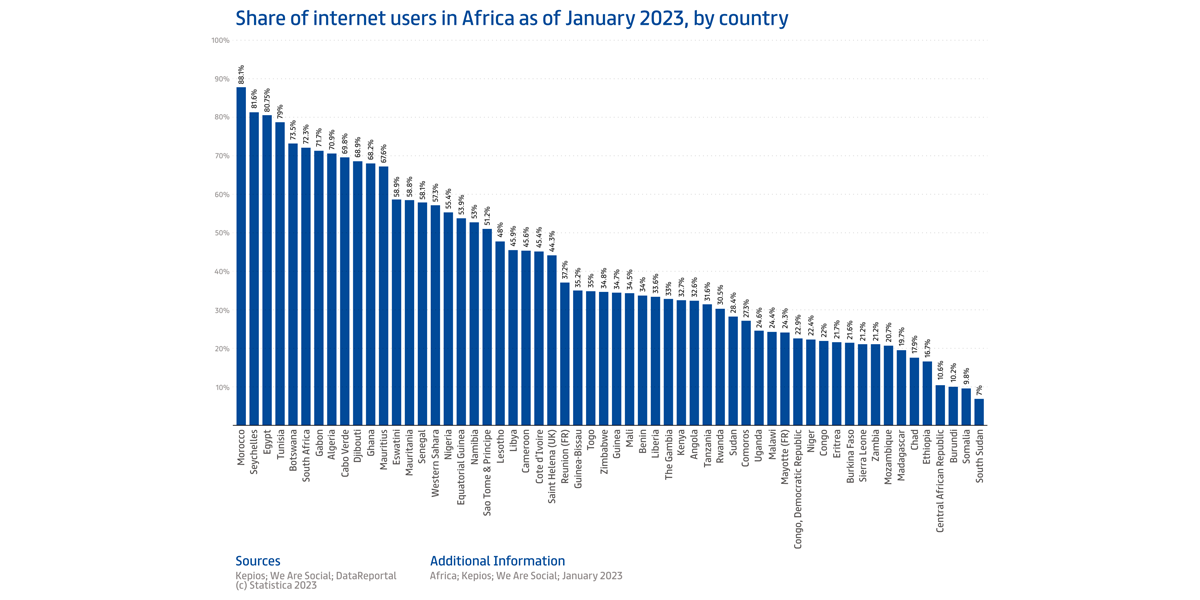According to the International Telecommunication Union (ITU), just over half of African countries had a National Broadband Plan in place in 2020 – however, internet penetration remains limited. ITU further indicates that only 40% of Africa’s population had access to the Internet as of 2022.
Many African countries have national broadband plans in place to increase internet penetration. For instance, Nigeria's National Broadband Plan aims to achieve 70% broadband penetration by 2025. Yet I, internet penetration across Africa faces significant challenges, many of which are intertwined with broader socio-economic and infrastructural issues.






